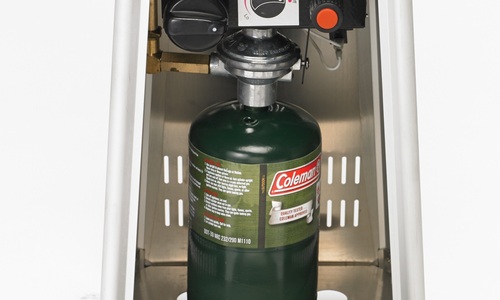5 minute read
|
Heating your home is essential, especially in colder regions. Choosing between gas and electric heating can be confusing, as each has its own advantages and disadvantages. Electric heaters are often more affordable to buy and install, and they don’t require the same kind of ventilation that gas heaters do. On the other hand, gas heating tends to be more cost-effective in the long run since gas is usually cheaper than electricity, and it’s better suited for warming larger areas efficiently. There are two main types of electric heaters: Radiant heaters – These use infrared radiation to heat objects directly rather than warming the air. They’re great for spot heating and are commonly used in garages or outdoor spaces. An example would be a portable heater you place near a chair or bed. Convection heaters – These work by heating the air around them, which then rises and is replaced by cooler air. This cycle continues, creating a steady flow of warm air. Convection heaters are ideal for enclosed rooms and come in forms like ceramic or oil-filled models. Gas heating systems are typically divided into two categories: Flued heaters – These are fixed units that require proper installation with a flue to vent exhaust gases safely. They must be installed by professionals and placed at the correct height to ensure safety. Non-flued heaters – Also known as vent-free or flueless heaters, these can be used in well-ventilated rooms but should never be used in enclosed spaces without proper airflow. Gas heating systems need proper ventilation to remove harmful emissions. This means ducts and vents throughout the house, making installation more complex and costly. Electric heaters, on the other hand, are usually portable and easy to set up—especially wall-mounted models, which may not require professional help. Gas heating systems tend to have higher upfront costs due to the need for a central furnace and proper venting. However, their lower operating costs over time can make them more economical. Electric heaters are cheaper to purchase and install, but they might cost more to run, especially if used for large areas. Gas heaters are generally more efficient at producing heat, which means they can warm larger spaces faster and more effectively. Since gas is often less expensive than electricity, this can lead to significant savings over time. Electric space heaters are best for small areas and can be a good choice when you only need to heat a single room or part of a room. Infrared heaters, a type of radiant heater, can pose fire risks if placed too close to flammable materials. Gas heaters require regular maintenance and proper ventilation to prevent carbon monoxide buildup. Always follow manufacturer guidelines and ensure that gas heaters are turned off before going to sleep. Tip: Heating can dry out the air, leading to skin irritation and other issues. Using a humidifier alongside your heating system can help maintain a comfortable indoor environment. The choice between gas and electric heating often depends on where you live. In colder regions like the Northeast U.S., gas heating is widely preferred due to its efficiency and effectiveness. In milder climates, electric heating might be more common, especially when heating demands are lower. If you're looking for a personal heating solution, radiant heaters are a solid option. They provide quick, targeted warmth and are ideal for individual spaces. Gas heaters, while slower to heat up, offer consistent warmth over a longer period and are better for larger areas. Electric heaters, particularly space heaters, are energy-efficient and perfect for smaller rooms or occasional use. Both systems have their pros and cons, but when used in smaller, personal settings, they can be highly effective. Large-scale systems like convection furnaces or radiant panels are more expensive and consume more energy, making space heaters a smarter choice for most households. Gas heating is typically better for larger homes or those in colder climates, where fast and efficient heating is crucial. Electric heating is a good alternative when there's no access to a chimney or venting system. Ultimately, the decision depends on your budget, climate, and heating needs. Want more information? Have a question? Contact us today, and we will be happy to help! Board Extrusion Equipment,Board Production Line,Pvc Foamed Skinning Board,Pe Board Extrusion Equipment Zhejiang Jinhai Plastic Machinery Co., Ltd. , https://www.jinhaiextruder.comGas vs. Electric Heating: Which is Better for Your Home?

Understanding HVAC and Home Heating
Types of Gas Heaters
Installation Considerations
Cost Comparison
Operating Costs and Efficiency
Safety and Maintenance
Popularity by Region
Gas vs. Electric Heaters: A Personal Choice
Which One is Right for You?
Gas vs. Electric Heating
Go Back To Blog